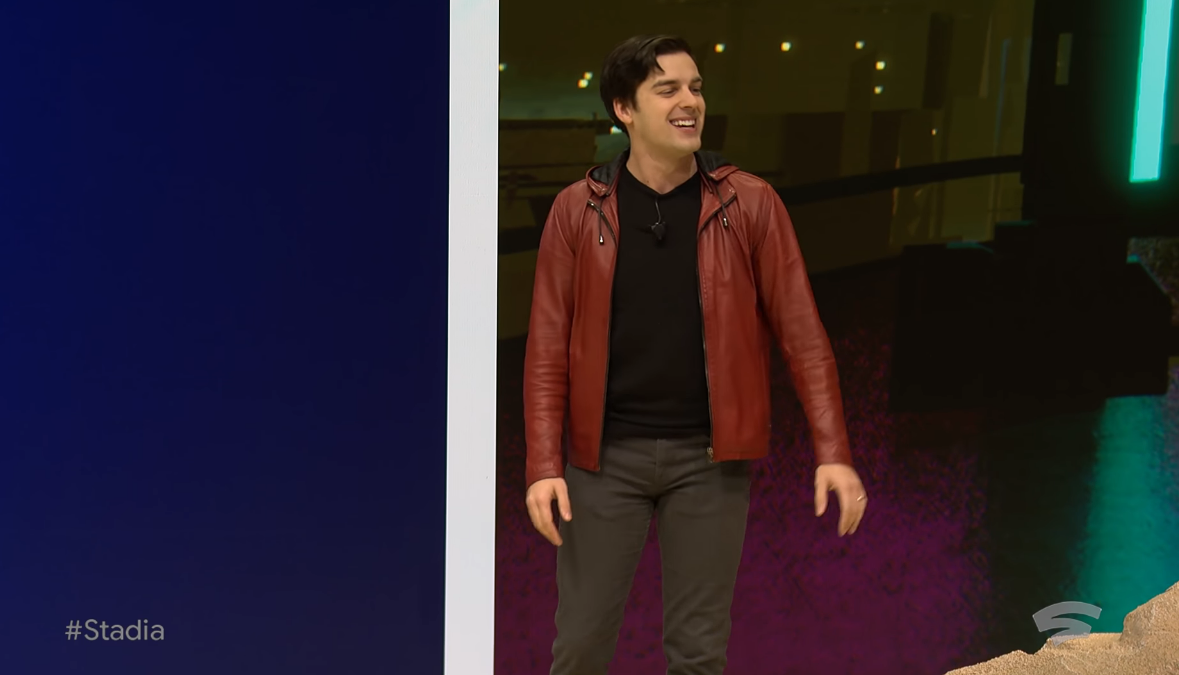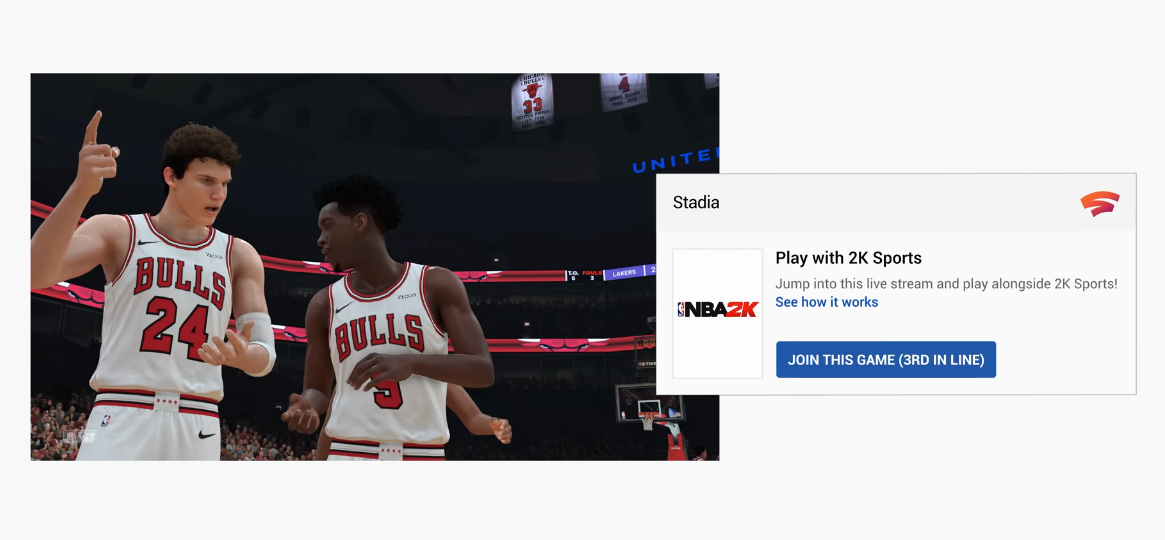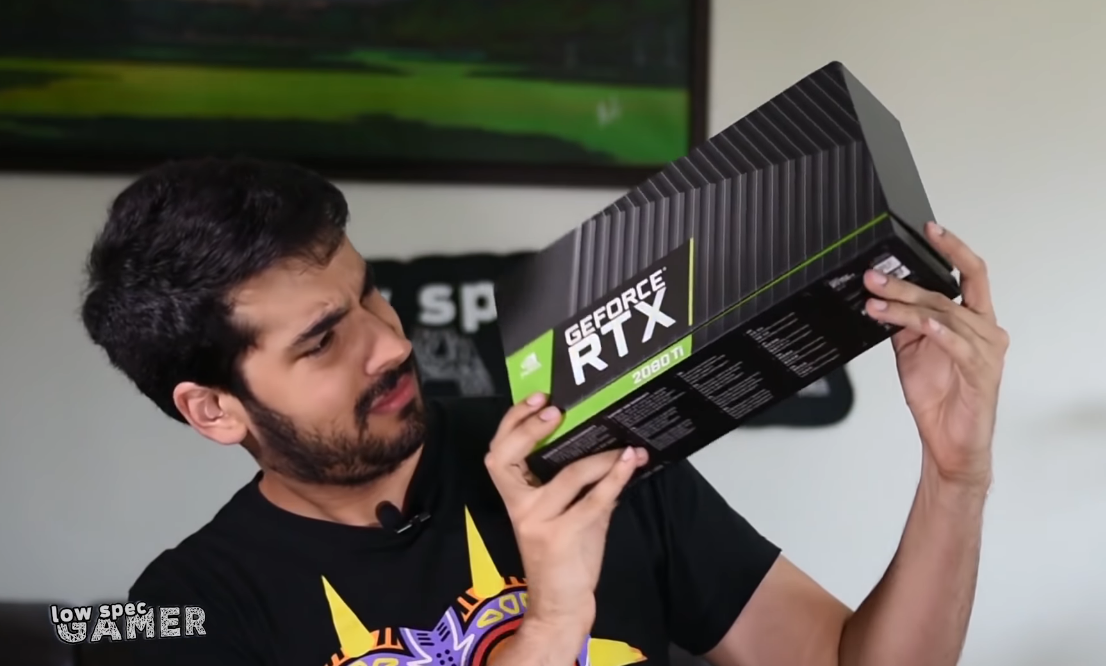Google Stadia: Why YouTubers Are Nervous (And Excited)
Google Stadia is meant to remove the barrier between YouTubers and fans, but doing so could create a slew of new complications for both parties.

SAN FRANCISCO - Google’s new Stadia platform isn’t just designed to let you stream high-end games on any device -- it’s also meant to connect players and YouTube content creators in a way that’s never been possible before.

For example, your favorite YouTuber could be streaming a match of NBA 2K, and within seconds, you can click a button to immediately start shooting hoops with them right from your browser. That's pretty big.
MORE: Unblock region-restricted content with the best YouTube VPN
By lowering the barrier between creators and fans, Stadia has the potential to be a huge boon for folks who make their living creating content on YouTube. But after speaking to multiple notable YouTubers, it’s clear that the service’s YouTube integration could be a lot more complicated for creators than you may think, despite the general sense of excitement around the platform.
"I think that Stadia is the beginning of what video games are going to be." - Tim Gettys, co-founder of Kinda Funny
“Honestly, I think that Stadia is the beginning of what video games are going to be,” said Tim Gettys, co-founder of popular channels Kinda Funny and Kinda Funny Games, both of which have more than 230,000 subscribers.
“[Google is] focusing so much on [a gamer] no longer just being the person who's holding a controller, but also being the people watching on YouTube, or the person sitting next to you on a couch that's helping you make your decisions in a narrative based game,” said Gettys. “I feel like Google's made some very wise calls to make sure that everyone is involved and that one day we will no longer refer to people as gamers, in the same way that we don't call people that watch movies moviegoers.”

The folks at Kinda Funny do tons of video game livestreams (primarily on Twitch) that occasionally involve viewers, so Stadia features like Crowd Play seem like a natural fit for the outlet. But when I asked Gettys if his channel would take advantage of such capabilities, his answer illuminated just how complicated the world of streaming can be behind the scenes.
Sign up to get the BEST of Tom's Guide direct to your inbox.
Get instant access to breaking news, the hottest reviews, great deals and helpful tips.
“The short answer is I would love to. Our Twitch contract will not allow us to do that, which I think is a very interesting wrinkle that is going to be introduced with all of this,” said Gettys.
MORE: Google Stadia: Our 3 Biggest Concerns
“This is gonna be a fundamental shift in how contracts are gonna need to be written and how the legal side is gonna be worked up, because if video games are built around these streaming services, then the streaming services are gonna need to play nice with each other,” he continued.
Not everyone gets to play
Another creator that flagged potential problems with Stadia is LowSpecGamer, a YouTuber with more than 570,000 subscribers who specializes in showing viewers how to run modern PC games on low-end hardware through all sorts of technical trickery. As someone who appeals to folks in emerging markets, he has a unique perspective on the potential pitfalls of Stadia, which is currently only set to launch in the U.S., UK, Europe and Canada.

“A lot of the countries where a lot of the big chunks of my audience are located are outside the support area of this thing,” said LowSpecGamer, who’s real name is Alex. “[Google does] not seem to be pushing this for a global scale at the moment which is worrisome.”
“A lot of the countries where a lot of the big chunks of my audience are located are outside the support area of [Stadia]." - Alex from LowSpecGamer
Alex is also concerned about the lack of communication between Google and its many creators when it comes to Stadia’s YouTube features.
“I'm worried about how this is going to be implemented in YouTube because there [is] precious little detail for that,” he continued. “And I think YouTube creators should be in the loop on this, because it's going to affect the way a lot of people do content and promote content.”
George Weidman, who creates video essays and game reviews for more than 400,000 subscribers on Super Bunnyhop, noted another potential problem with Stadia removing the barrier between fan and creator. While he’s open to using Stadia to play multiplayer games with his audience, he noted how it could open the door to a flood of bad behavior.

“I sure as hell won't want to open myself up to stream sniping and other forms of online harassment,” said Weidman in a Twitter message. For the uninitiated, “stream sniping” refers to when a player watches someone’s stream in order to get an advantage when playing against them in-game.
“The intimacy of that connection feels like it should be distant by historically-proven necessity,” Weidman added.
So while Stadia might make your favorite YouTubers more accessible than ever before, you might not see them jumping onto new features such as Crowd Play all at once. From exclusivity deals with rival platforms to the unfortunate toxic nature of many online gaming spheres, Google’s vision for keeping fans connected to creators comes with a slew of caveats.
A cautious outlook
Streaming implications aside, both Weidman and Alex share concerns about Stadia as a whole.
“I would like to see streaming options exist as alternative or portable versions of existing games,” said Weidman. “But now that Google's signed exclusives on to the platform, they are playing a very dangerous game with how those exclusive games will be received in the short-term and preserved in the long-term."
Speaking of exclusivity, Alex was quick to point out that Google was fined by the European Union for $1.7 billion shortly after Stadia was unveiled for unfair advertising rules that essentially required third-party websites to favor Google’s ad services over competitors.
“I think that's deeply symbolic that [this happened] right after this announcement, so that's the part that I'm a little worried [about]” said Alex.
Ultimately, it will be up to Google -- and the individual communities of YouTube’s many creators -- to ensure that Stadia’s always-connected nature ends up being a win for streamers, gamers and developers alike.
“In part, I’m hopeful because it's Google and they have they resources to pull this off properly,” he continued. “But at the same time, it's Google, and that means that it comes with certain implications.”
Mike Andronico is Senior Writer at CNNUnderscored. He was formerly Managing Editor at Tom's Guide, where he wrote extensively on gaming, as well as running the show on the news front. When not at work, you can usually catch him playing Street Fighter, devouring Twitch streams and trying to convince people that Hawkeye is the best Avenger.

